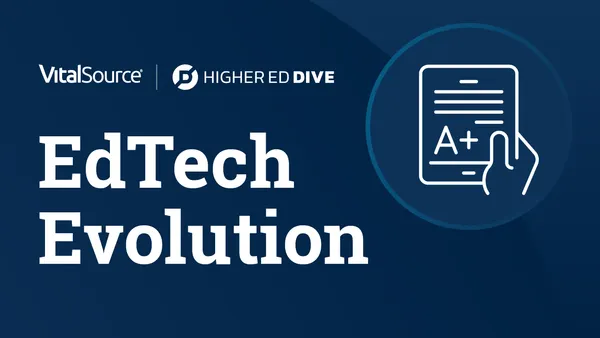Dive Brief:
- Certificates from technical programs now make up one-quarter of all credentials awarded, and the number of certificates awarded has grown 800% in the last 30 years, increasing the need for a national conversation about credentials.
- In its report, “Connecting Credentials,” The Lumina Foundation presents five focus areas in the push to make a better credentialing system, including the development of a common language to describe competencies each credential represents and the use of that language through technology, so people have a digital way to research the credentials.
- Employers should be involved in a feedback loop to maintain the relevance of competencies, there should be quality assurance processes to assess learners’ progress in their credentialing programs, and pathways should connect credentials with career options, according to the report.
Dive Insight:
With an increasingly diverse and competitive higher education marketplace, there is a dire need to make sense of the dizzying array of options students have when considering higher education.
Without information about the competencies behind each credential, employers are often left to rely on institutional reputation when considering quality of learning. Developing a consistent language for discussing credentials will create more of a level playing field for alternative programs, which would inherently take away some of the advantage traditional schools have. So-called 21st century transcripts and maybe even badges, with their clickable routes to more information about student work and proof of mastery, may do the same thing, making free online credentials even more worthwhile for students.










